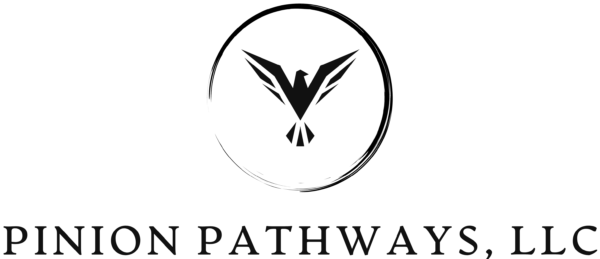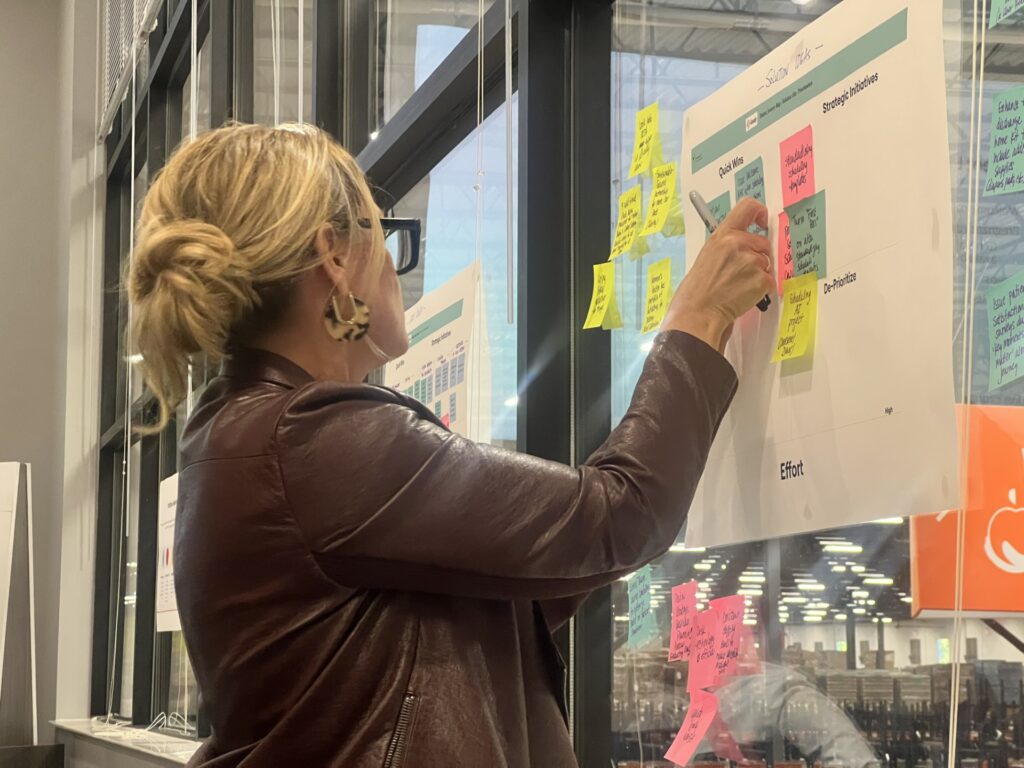If your team is ready to create something extraordinary in an environment where creativity and inclusivity drive impactful results, I invite you to explore more at Pinion Pathways.
Workshops are one of my favorite ways to bring cross-functional teams together. There’s something uniquely energizing about watching a group discuss long-standing issues, sometimes ones they’ve simply learned to live with, and start to put real solutions on the table. It’s a powerful reminder that when people come together with focus and intention, real change can happen.
When we reach the solution phase in a workshop, the ideas generally fall into three categories:
- Quick Wins – These are small but impactful changes that teams can tackle right away, with minimal resources or budget. They’re actionable and often lead to visible improvement quickly. With focus, teams can make headway on these immediately.
- Strategic Initiatives – These solutions offer high value but require a larger investment of time, budget, or resources. They’re often broken down into smaller, manageable actions to make steady progress. It’s key to keep these initiatives moving through successive actions to reach the ultimate benefit.
- Deprioritize – Sometimes, ideas that seem promising at first don’t hold up under scrutiny. When the effort outweighs the benefit, it’s usually better to deprioritize and focus on what will bring the most value.
After a recent workshop, a leader approached me, surprised by the number of Quick Wins uncovered. Why did it take a workshop to bring these ideas to the surface? Here’s what I shared in response:
- The Daily Grind – Our day-to-day jobs are demanding, and it’s easy for teams to become so focused on “getting through the day” that they don’t step up onto the balcony to see the bigger picture. Creating a focused environment, like a workshop, provides the space and time to step back and think more creatively about driving improvement. It also sends a signal that leadership wants to hear the team’s ideas and empower action.
- Siloed Optimization – Many organizations optimize within departments but tend to invest less in cross-functional, end-to-end workflow improvements. Yet, it’s in these hand-offs and seams between departments that inefficiencies and miscommunication often arise. One team may think it’s the other team’s responsibility to address these issues, and so they persist.
- Culture Matters – Does your team feel empowered to bring forward and execute new ideas? Do they feel that their creativity is recognized and rewarded? If simple requests feel like a burden to navigate through the system, or if organizational politics hinder innovation, it’s easy for ideas to stagnate. Workshops give people a structured opportunity to share without the usual barriers.
While these are super common challenges in today’s organizations, I consistently see that teams rise to the occasion when we create the right environment. By carving out time and space for cross-functional collaboration, we allow people to temporarily step away from their usual responsibilities and focus on driving improvement. But the work doesn’t stop when the workshop ends. Once solutions are identified—whether they’re Quick Wins or longer-term initiatives—it’s essential to create momentum. Teams need to see that their ideas can be translated into action. Otherwise, they may begin to feel conditioned to maintain the status quo, believing that change is too challenging to pursue.
Workshops are more than just a venue for brainstorming. They’re a chance to foster real engagement, inspire action, and break the patterns that hold teams back. With a commitment to follow-through, we can turn good ideas into lasting improvements that benefit the entire organization.


